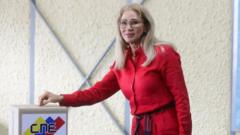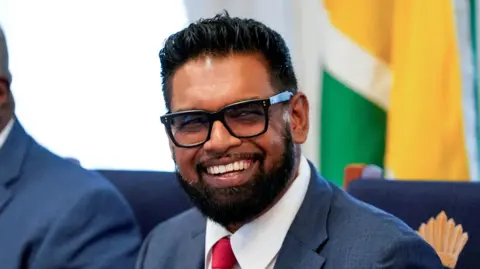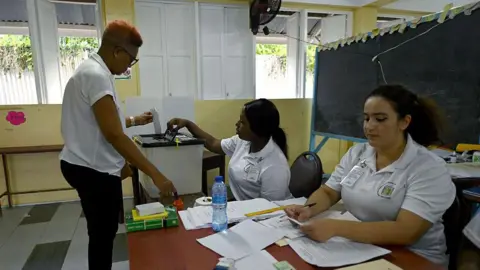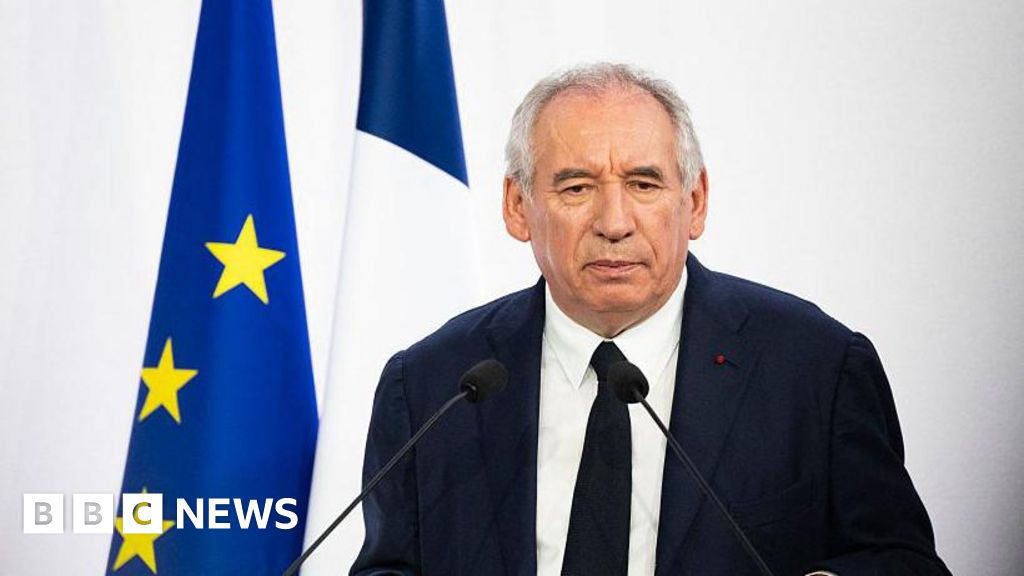Venezuela's ruling United Socialist Party (PSUV) has declared a significant electoral victory following regional and parliamentary elections marked by a stark boycott by opposition factions. The National Electoral Council (CNE), perceived as heavily biased toward President Nicolás Maduro's administration, reported that candidates from the PSUV secured the governorship in 23 out of 24 states and commanded an overwhelming 82.68% of the votes in the National Assembly elections.
In stark contrast, major opposition parties, which labeled the elections a "farce," alleged that fewer than 15% of the Venezuelan populace participated. Key opposition figure María Corina Machado criticized the voter turnout, asserting, "More than 85% of Venezuelans did not acknowledge this regime."
Despite the CNE estimating voter turnout at 42.6%, eyewitness accounts from independent journalists described a lack of queues at polling centers, indicating significantly diminished participation compared to last July's presidential elections.
The independence of the CNE has consistently been questioned by opposition, particularly following the controversial declaration that Maduro won last year's elections without providing concrete vote counts. As a result, the opposition has turned to independent data, claiming their candidate, Edmundo González, was the true victor. González has since fled to Spain due to a sweeping crackdown on dissent following the presidential vote.
Amid the tensions, Machado emerged as a leading voice urging fellow opposition members to boycott the elections, insisting respect for last July's results is paramount before further elections are held. Nevertheless, some opposition politicians, including former candidate Henrique Capriles, chose to participate, prompting criticism from Machado, who accused them of betraying their cause.
Maduro celebrated the electoral results as a "victory of peace and stability," reclaiming states like Zulia and Barinas — notable as the home state of his predecessor, Hugo Chávez. The re-election of Alberto Galíndez was the only triumph for the opposition, maintaining control of Cojedes.
The backdrop of the elections was marred by a wave of arrests; over 70 opposition-linked individuals were detained for allegedly plotting electoral sabotage, a move Machado condemned as "state terrorism."
The elections also included a symbolic vote for representatives from the contested Essequibo region, claimed by both Venezuela and Guyana but administered by the latter. The Maduro government, disregarding a court order, staged this vote for a newly created district, yet it holds no real authority over the territory. Guyanese President Irfaan Ali condemned this as "scandalous" and vowed to protect his country's territorial integrity.




















